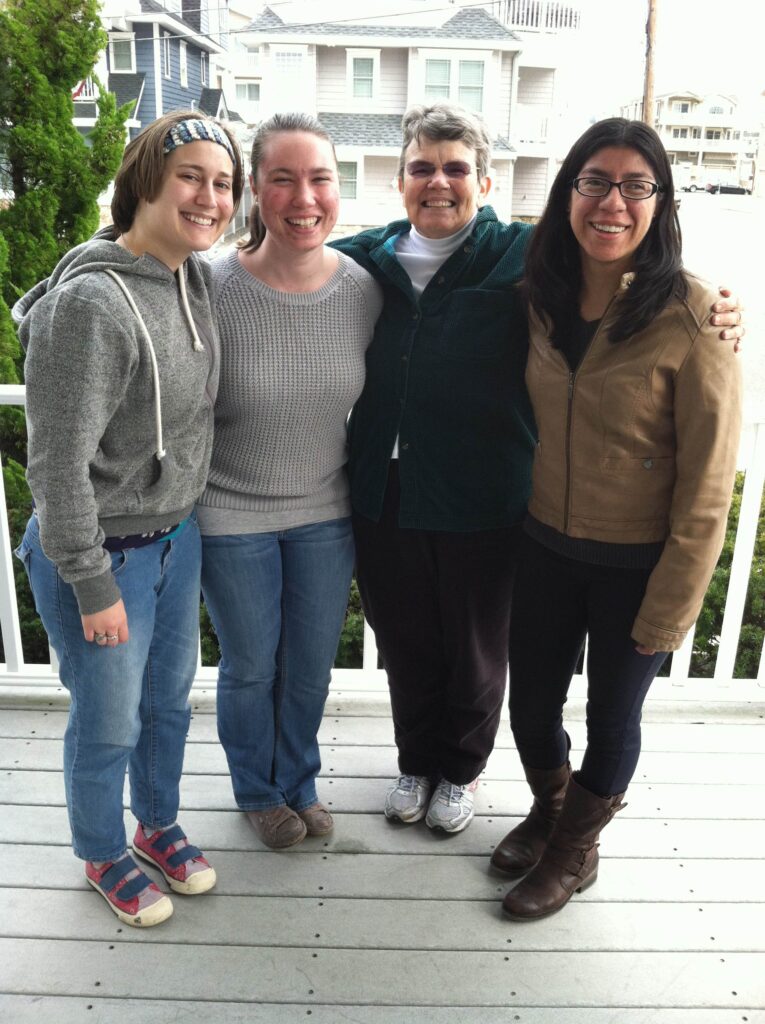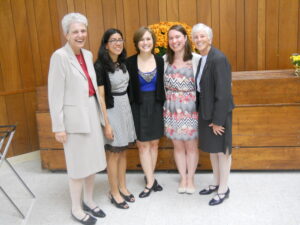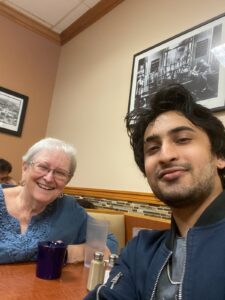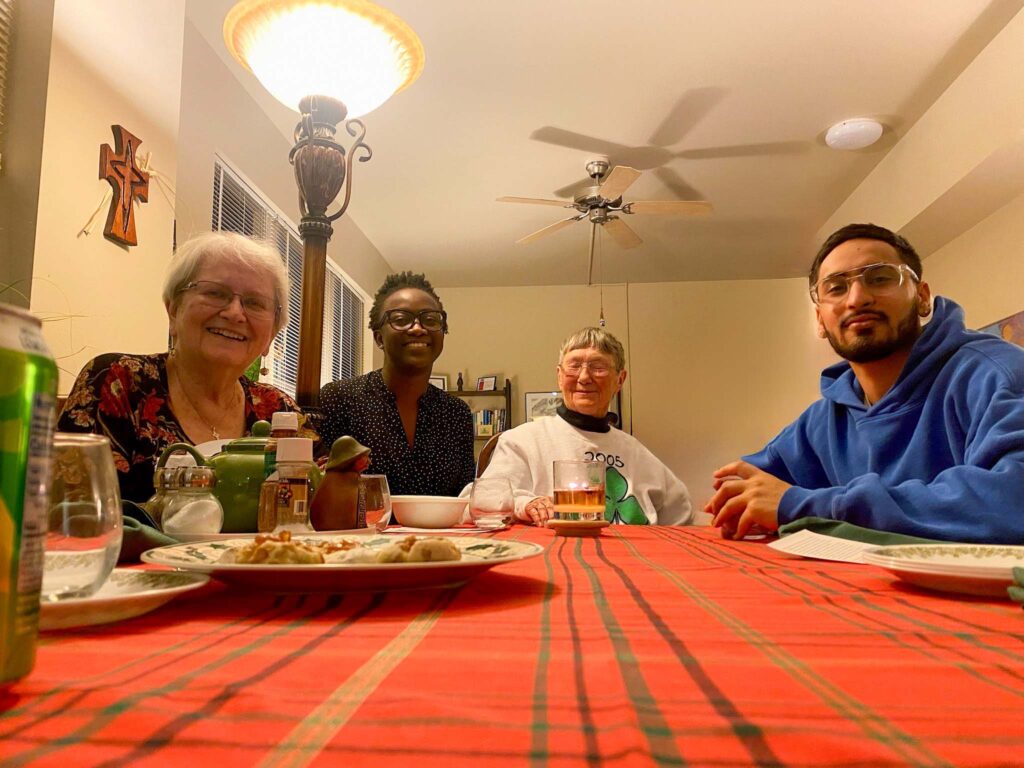This year’s Mercy Day celebrations center on the theme of “Walking with Mercy.” While the concept recalls the description of Sisters of Mercy as “Walking Sisters” that is tied to the very beginning of the Mercy Community, it is also deeply connected to the ministries in which the sisters are engaged today, walking with others in a spirit of encuentro. Two Mercy Volunteers explain their experiences “Walking with Mercy.”
By Alexandra Pierlott, Mercy Associate

During my service year with Mercy Volunteer Corps (MVC), the theme was “Walking on Holy Ground,” a reference to the moment in Exodus when Moses meets God in the burning bush.
God says to Moses, “Put off your shoes from your feet, for the place on which you are standing is holy ground” (Exodus 3:5). It strikes me now, nine years later, MVC encouraged us volunteers to reflect on the journey that comes after this encounter with God. Just as Moses went forth from that place to lead God’s people out of slavery in Egypt, we volunteers were called to go forth and pay attention to the ways we could walk with those we encountered.
I quickly learned during my service year how much the Mercy community could teach about how to accompany others on the journey. From the day of their founding onward, these “walking nuns” have not lost this beautiful gift of meeting people where they are and walking beside them. Though I have seen this in all the Mercy ministries I have encountered, the gift was most profoundly apparent in the two Sisters of Mercy and a Companion in Mercy who walked beside me on my own journey that year.

They taught me that we show others we are walking with them in the simple, everyday ways we offer them hospitality. Sisters Judy Carey and Lorraine LaVigne greeted the volunteers with wide smiles and warm hugs soon after we landed in Hartford, Connecticut, our service city. Companion Sue LaVoie and Sister Elaine Deasy (whom we dearly miss) welcomed us warmly into their home for nights of reflection and fellowship. These women walked with us throughout our year of service: cooking meals for us, inviting us into their everyday lives, sharing deep conversation with us. They made us feel seen, known and loved. Even though my fellow volunteers and I left Hartford in 2015, these three women have continued to support us and love us. They walk with us through Zoom catchups, e-cards, a traveling notebook and cherished in-person visits. Their genuine and deep care for us and interest in our lives has strengthened us in our own individual journeys.
These Mercy women treat the journey with us as holy ground. Recognizing that when we walk with others, we are walking on a sacred journey allows us to treat each person we meet with dignity as children of God. Catherine McAuley’s “walking nuns” recognized this from the beginning, and they continue the journey. Though God can choose to appear in a burning bush, God also is present in the everyday ways we walk with all those we encounter, remembering that every step of the journey takes place on holy ground.
By Devarsh Desai, Mercy Volunteer Corps Alumnus

There is a certain power in connections. It is easy to see when we think about our friends and family. But what about the connections we make with people who are dissimilar from us? My relationship with Sister Mary Ellen Howard created a mindset about connections within me for which I will be forever grateful.
As a low-income immigrant and person of color, it can be difficult to be involved with a religious institution that does not match your family’s religion and to engage in practices remote from your lived experience. In my case, however, I found it easier to adjust and become comfortable with the novelty of a new experience because my individual values do not conform to a single religion.
As a child, I never really felt what it was like to have parents and grandparents. Though they were present in my life and loved me dearly, they faced significant problems. I never felt like I could communicate what I needed because I felt it would be selfish for me to do so.
Sister Mary Ellen, the unofficial mayor of Detroit, opened a new world for me. She had a voice that could not be silenced, and she used that voice to continuously push the boundaries of social injustice.

In conversation after conversation, Sister Mary Ellen surprised me. Her ”backstage” achievements as she fought for just causes allowed more people to experience the privileges of humankind. But despite what she has done, she was clearly not satisfied and thought there was more progress to be made. She lived a life in the service of others, a life of true humility. Her example is one that I can only aspire to live by.
And Sister Mary Ellen maintained relationships with people she loved no matter how difficult it seemed. I noticed this as she spoke of all the people in her life and the effort she would make to stay connected with them, from traveling for birthdays to spending the month with loved ones undergoing medical treatment. Though she never wavered in her strong-held values, she always respected contrasting systems of thought. I know this because I felt so comfortable talking with her about everything that was on my mind. She never judged me. She always cared. Sister Mary Ellen is a life-long learner and I am grateful to have her in my life as a non-blood grandmother.
This relationship has taught me that when it comes to human connection there are fundamental values that can link individuals no matter how dissimilar they may seem. Sister Mary Ellen was an 80-year-old Catholic woman and I was a 20-something Indian teenage boy. However, none of that matters when you cultivate the skills to open your mind, listen carefully and speak authentically.